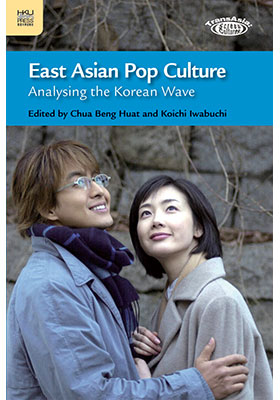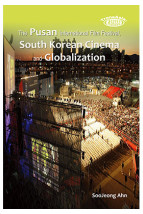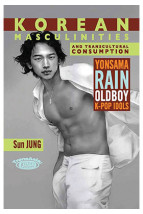East Asian Pop Culture
Analysing the Korean Wave
(東亞流行文化:韓流研究)
ISBN : 978-962-209-893-0
February 2008
320 pages, 6″ x 9″
Ebooks
Also Available on
The international group of contributors of this volume provides, collectively, a multi-layered analysis of the emerging East Asian media culture, using the Korean TV drama as its analytic vehicle. By closely examining the political economy of TV industry, audiences of the regional media flows in terms of gender subjectivity constructions, perceptions of colonial-postcolonial relationships, and nationalist responses to trans-national media culture exchanges, this volume highlights the multiple connectivities and implications of popular cultural flows and exchanges in East Asia.
In spite of the obvious flows and exchanges that constitute pan-East Asian Pop Culture as a relatively coherent unit, the academic research community is far behind the cultural industry producers who have long factored the regional consumer market into their production and marketing. This volume is motivated by the need to find both the conceptual and institutional site(s) for the constitution of an East Asian Pop Culture. The resulting discoveries demonstrate that this culture co-exists with US domination in global media industry, and offers new empirical and conceptual insights into cultural globalization which cannot be ascertained in existing US-centric analyses.
“The Korean Wave is one of the most remarkable popular phenomena to have swept East Asia in the past decade. This collection of essays by the region’s leading scholars of the phenomenon examines the Korean Wave from the perspectives of China, Hong Kong, Taiwan and Japan as well as Korea itself. Their multi-layered and sophisticated analysis of the wave’s production and consumption, and of the criticisms and resistances it has evoked, makes this book essential reading for anyone with an interest in contemporary East Asian popular culture.” —Tessa Morris-Suzuki, Professor of Japanese History, Australian National University
“Focusing on the world’s most talked-about pop phenomenon of the past ten years—the startling success of the Korean Wave—this book is a breakthrough for the serious study of cultural globalization and media region-formation alike. By combining accounts of the political economy of East Asian TV with essays on the transnational reception of and nationalist reactions towards Korean TV dramas, East Asian Pop Culture shows us vividly how to make sense of the links between media policy, celebrity culture, and popular sentiment in our time.” —Meaghan Morris, Chair Professor of Cultural Studies, Lingnan University, Hong Kong







